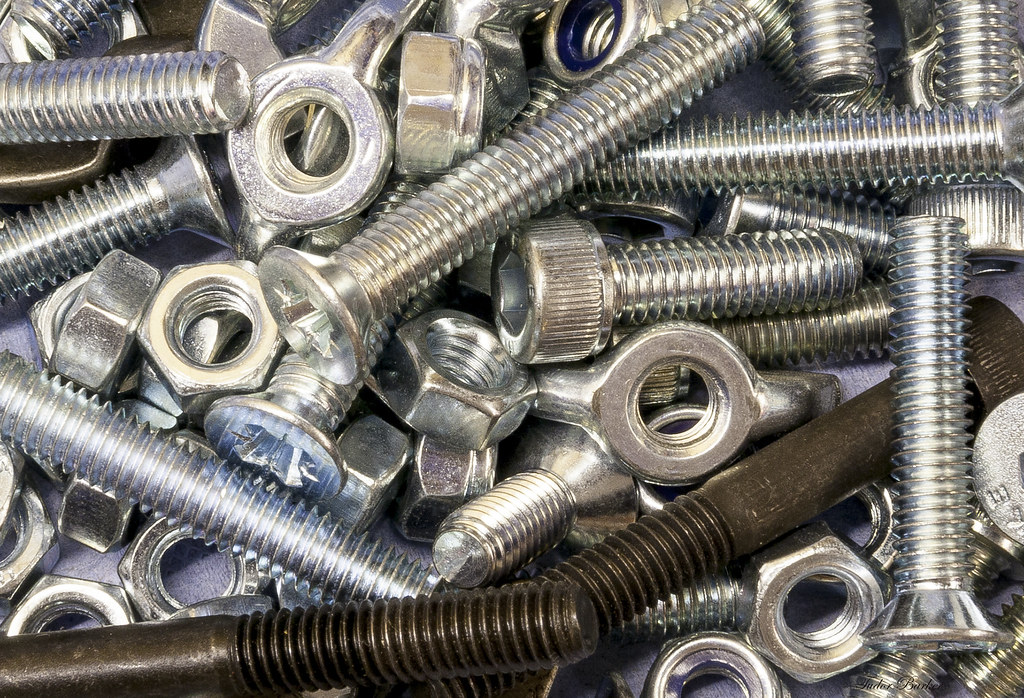Types of US Bolts

Bolts are a great way to connect two pieces of material. They offer strength, reliability, and ease of installation. They can be used for both home repairs and construction projects. Standard bolts come in a variety of sizes, threads and strength grades. A caliper is a good tool to measure bolts. Stainless steel Stainless steel bolts are often used for applications that require corrosion resistance. They have a high chromium content, which makes them more resistant to rust and corrosion than steels without chromium. They also have good formability, good strength and toughness, and excellent machinability. These fasteners are also useful in the food industry because they are easy to clean and non-magnetic. In addition, they are resistant to chemicals and have low thermal conductivity. Custom manufacturer of metal fasteners including screws, bolts, anchors & rivets in stainless steel, brass & bronze. Capabilities include screw machining, broaching, milling, knurling, cross drilling, tapping and assembly. ISO 9001:2008 certified. Blanket orders accepted and bin stocking programs offered. JIT delivery available. Carbon steel Carbon steel bolts and nuts are a common type of fastener found in many different types of hardware. They can be used for a wide variety of applications and are relatively affordable, although they may not have as long of a lifespan as stainless steel bolts. These bolts are characterized by their high tensile strength and their ability to bear loads. They also respond well to heat-treatments, preventing them from becoming too brittle. These bolts come in a variety of shapes and sizes, including hex bolts, carriage bolts, lag screws, stud bolts, eye bolts, anchor bolts, and foundation bolts. They are often coated with zinc to protect them from corrosion and rusting. They are also available in a number of threads and sizes. They are also easy to machine. Aluminum Aluminum bolts are a great option for many applications. They are lightweight compared to traditional steel fasteners, and have great corrosion resistance. They also require less torque during installation, which helps to prevent damage caused by over-tightening. The strength of a bolt can be determined by the number printed on its head (called a property class). A higher class means a stronger bolt. Bolts can also be categorized by their thread pitch. The thread pitch is the distance between adjacent crests on a bolt. It can be measured using a tool called a caliper. Coarse threaded bolts are typically used in general purpose applications, while fine threaded bolts are used in precision applications and situations where a higher holding force is needed. Brass Brass bolts offer a unique combination of strength and corrosion resistance. They are less vulnerable to water and other corrosive substances than stainless steel or solid copper, making them ideal for outdoor applications and marine environments. They also offer a decorative finish that enhances the appearance of a project. When selecting a bolt, it is important to consider its tensile and yield strengths as well as the size and texture of its shank. Bolts with a high tensile strength will hold up well to heavy loads, while those with lower strengths may not be suitable for certain applications. Bolts are available with either right-handed or left-handed threads. The former advance axially when tightened, while the latter advance in a counterclockwise direction. Other important specifications include the grip and thread lengths. Copper Copper bolts are a great choice for applications that require corrosion resistance. They do not rust and can be used in harsh environments that would damage other types of metals. These bolts also have superior electrical conductivity. Often, these bolts are marked with a numbering system to indicate the grade. Grade 2 is the most common household grade and is made of low or medium carbon steel. It is identified by no radial lines and has a minimum tensile strength of 57000 psi. The higher grades, which have 6 radial lines, are usually case hardened and are made of medium or high carbon steel. These bolts are often used in automotive applications. They can withstand extreme temperatures and have high ductility and toughness. These bolts are also resistant to bacterial growth and work well in seawater.US bolts
